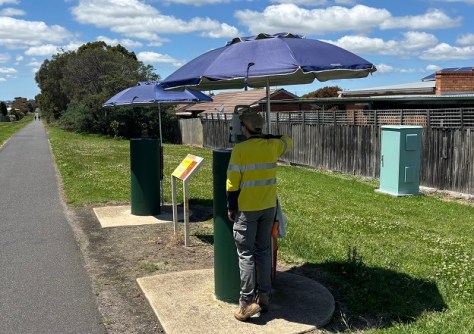
Victoria and Queensland have conducted annual survey and certification updates of distance calibration baselines used by surveyors to calibrate their equipment.
In the case of Victoria, the Surveyor-General Victoria (SGV) maintains six electronic distance measurement (EDM) calibration baselines at Bendigo, Braeside, Geelong, Hamilton, Cowwarr and Mitcham.
Each baseline needs to have its interpillar distances re-measured annually for legal traceability of length. That data is then processed to produce certified distances, which are published in the baseline software.
In the case of Queensland, the Department of Natural Resources and Mines, Manufacturing, and Regional and Rural Development has recently recertified the state’s northern EDM baselines.
Queensland splits its baselines into two groups: the northern group (at Goonyella, Mackay, Mica Creek, Townsville and Walkamin), which are recertified every odd calendar year, and the southern group (Caboolture, Childers, Gold Coast, Leyburn and Tungamull), which are recertified every even calendar year.
The northern group’s baseline certificates and calibration software are now available on the Department’s website.
Queensland has adopted the Medjil software — developed by Western Australia’s Landgate in collaboration with the Intergovernmental Committee on Surveying and Mapping — for EDM calibration and for the 2025 recertification of its northern baselines.
The Department plans to simultaneously operate both the Medjil and the older Baseline software until late 2026 to make sure that surveyors have enough time to adopt the new system. Baseline will then be decommissioned and only Medjil will be used.
The Department is working with Landgate to refine the Medjil user guides and has invited feedback on the use of Medjil and the guides via Geodeticsupport@nrmmrrd.qld.gov.au.
Other Australian jurisdictions have either already transitioned from Baseline to Medjil or, as in the case of Victoria, have plans to do so.
Medjil is a word from the Whadjuk Noongar language, meaning ‘accurate’.






